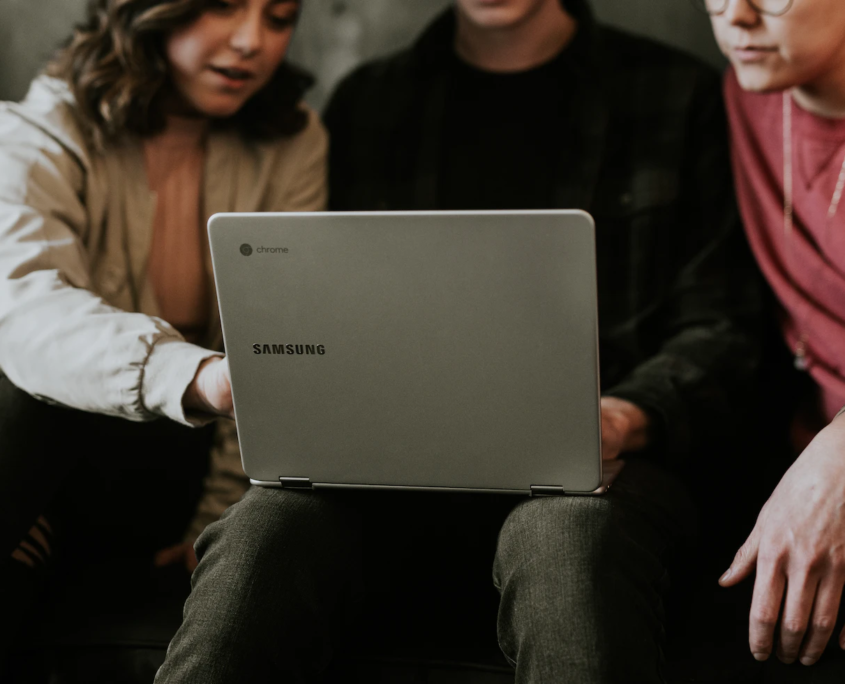Project Reconnect Connecting Refugees Using Chromebooks
 Refugees who fled to Germany from mostly Syria, Afghanistan, Iraq, Albania, Pakistan, Nigeria, Kosovo, Eritrea and Iran, received a total of 25,952 Chromebooks, from 50 different grant organizations between 2015 and 2017. These grant organizations were supported through Project Reconnect which received funding from Google’s $5.3 million dollar grant and support from the Google Engineering Center in Munich and NetHope. They provided refugees with access to critical resources such as German language classes, access to obtain jobs and to communicate with family and friends.
Refugees who fled to Germany from mostly Syria, Afghanistan, Iraq, Albania, Pakistan, Nigeria, Kosovo, Eritrea and Iran, received a total of 25,952 Chromebooks, from 50 different grant organizations between 2015 and 2017. These grant organizations were supported through Project Reconnect which received funding from Google’s $5.3 million dollar grant and support from the Google Engineering Center in Munich and NetHope. They provided refugees with access to critical resources such as German language classes, access to obtain jobs and to communicate with family and friends.
What the Chromebooks Were Used For
A survey conducted among refugees concluded that 53% of the refugees mostly use the Chromebooks for educational purposes. Furthermore, this survey finds 19% of refugees mostly do research on ways to better their health, housing, refugee status and on other critical needs. Another 19% of the refugees mainly used the Chromebooks to entertain themselves, browse through Facebook, watch videos and do other fun activities. About 18% of refugees used the Chromebook to communicate with people. Furthermore, 17% of the refugees used the Chromebook to look for and get a job or jobs. Additionally, a survey found that 86% of the refugees have found the Chromebooks helped them to receive an education, get a job, do important research to improve their lives or communicate with people.
The Most Impactful Grant Organizations Involved
There were 50 grant organizations involved. However, only five grant organizations were granted with a number between 1,000 and 3,500. This list includes the following grant organizations: Asylplus e.V., Internationaler Bund (IB) Freir Träger der Jugend-, Sozial- und Bildungsarbeit e.V., Kolpingwerk Deutschland gGmbH/ Kolping-Netzwerk für Geflüchtete, Malteser Hilfsdienst e.V. and VHS-Deutscher Volkshochschul-Verband e. V.
Project Reconnect Demographics in 2017
As of June 2017, about two months before Project Reconnect ended, according to a survey, the percentages of refugees using the Chromebooks are as follows: 39% for 20-29 year olds, 10% for refugees under age 15 and 2% for ages 60 and above. 25% of the refugees fled Syria, 12% of the refugees escaped Afghanistan, 10% of the refugees escaped Iraq, 7% fled Eritrea, 4% were forced out of Nigeria and 4% had to flee from Iran, among a few other countries. The percentage of women who were involved in this survey is slightly above 30%.
An Anecdote From a Refugee About How the Chromebook Changed Their Life
An Iraqi refugee, who used the made-up name Samer to protect their identity, said they had been a refugee in Germany for two years and seven months. They conveyed they are a member of a study group which utilizes the Chromebooks at a library in Bogenhausen Germany. In this study group, they were able to take all of their language tests and complete the course which prepares them to integrate themselves in Germany.
– Rachael Weiser
Photo: Unsplash
